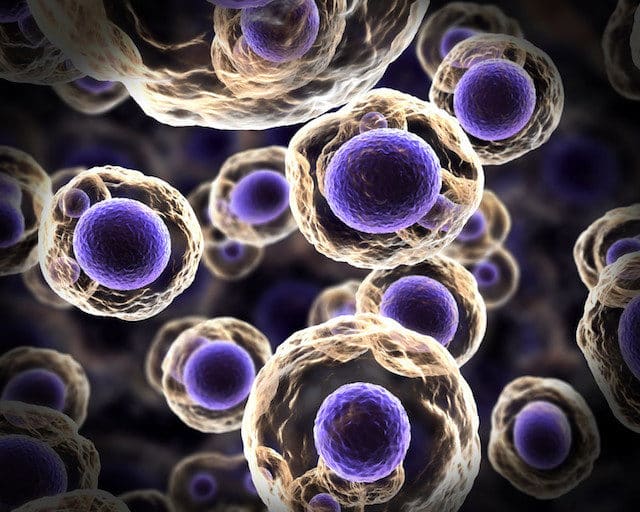Researchers are now saying that the future of cancer treatment is integrative. What does that mean?
The medical community talks in terms of “conventional” treatments, such as chemotherapy and radiation, and what they deem “alternative” treatments, such as certain immunotherapies and nutritional protocols. Integrative treatments combine both “conventional” and “alternative” to provide patients with the best possible chance of healing.
So where can you access integrative therapies?
CHIPSA Hospital in Tijuana, Mexico.
The renowned immunotherapy cancer clinic offers a comprehensive cellular program that combines cutting-edge immune cellular treatments with other immunotherapies, nutritional protocols, psychological therapies, and sometimes chemotherapy and/or radiation.
Their treatment plans are not one-size-fits all, so they understand that every case is different and their protocol allows for that.
Take a look at what their unique cellular program has to offer.
CHIPSA’s Immune™ Cellular Program
The hospital has an entire Immune™ Cellular program that uses cell therapy to treat cancer. Cell therapy is a type of therapy that calls upon a patient’s own immune cells to attack and kill cancerous cells. The treatments actually use a combination of the patient’s own tumor and blood, which has been shown to create the best immune response.
This program is likely the most comprehensive combination of treatments available at any integrative cancer hospital. It includes personalized products from full tumors, dendritic cells, natural killer cells and macrophages. The protocol was designed by top scientists and doctors at CHIPSA and is fully supported by the current immunotherapy research developing around the world.
Can patients access any of these treatments in the United States?
There are some immune cellular treatments that are either FDA-approved or currently in clinic trials in the U.S. But the cost of these treatments is very high in the states.
At CHIPSA, patients can receive the treatments at a much lower cost.
The other thing about cellular treatments in the U.S. is that they are pretty limited. The long and expensive trial process means that they are typically only offered in specific cases and only on their own.
But at CHIPSA, patients can receive cellular treatments along with other therapies in order to achieve the best immune response.
Gabrial Fernandez, CHIPSA’s patient advocate, witnesses patients from the states accessing these treatments often. “It’s great to be able to help so many patients access cutting-edge treatments and save so much money by coming to Mexico,” he said. “They are aware of the price savings of real dendritic cell vaccines.”
CHIPSA’s Top 3 Cellular Therapies
Dendritic Cell Vaccine
Dendritic cell vaccines are currently available in the U.S. for $93,000.
But you can get the same treatment at CHIPSA for $7,500.
The U.S. dendritic cell vaccine is called Provenge. It’s the only vaccine approved for use in states for use in treating prostate cancer. A Phase-3 FDA trial showed that this vaccine extended patient’s lives by 4 months. In 2011, the treatment won the Nobel Prize in Medicine.
CHIPSA has been using dendritic cells since 2000, giving them 20 years of experience of finding the best methods. Their vaccines do not use a specific cancer antigen. This is because they’ve found it’s more effective to create a danger signal in the patient’s own cancer.
Typically, dendritic cell vaccines in the United States are given as a standalone treatment. CHIPSA uses the treatment a bit differently.
As with most of their treatments, dendritic cell vaccines are given only in combination with other therapies. It’s difficult for doctors in the U.S. to implement this method since trials take a long time and cost a lot of money. Fortunately, CHIPSA has had many years of experience using the vaccine along with other treatments.
How Patients Combine Chemotherapy & Radiation with Dendritic Cell Therapy
If you’re a cancer patient receiving chemotherapy or radiation, that doesn’t exclude you from receiving dendritic cell therapy!
Many patients who use chemotherapy and/or radiation also come to CHIPSA for treatment.
Dendritic cells are antigen-presenting cells. So when high doses of chemotherapy and radiation produce dead tumor antigens, dendritic cells present those dead cells to T-cells, which are part of the adaptive (memory) immune system.
CHIPSA doesn’t have to stick to a certain protocol like in an FDA clinical trial. This gives them — and their patients — the freedom to customize a treatment plan that will work best. Some patients use parts of their protocol along with conventional treatments at home. Even though some of the cellular treatments have not been fully approved in the U.S., some oncologists still encourage their patients to go to CHIPSA and receive dendritic cells, lymphokine activated killer cells (LAKs), and tumor lysate vaccines.
A study titled “Long-Term Clinical Responses of Neoadjuvant Dendritic Cell Infusions and Radiation in Soft Tissue Sarcoma” showed that 67% of soft tissue sarcoma patients were alive at 8 years with a combination of dendritic cells, surgery, and radiation. This was a significant increase in survival for patients with tumors >5 cm. This is compared to a 54% 4-year survival after surgery and chemotherapy for tumors larger than 5 cm with soft tissue sarcomas.
Combining Treatments May Improve Response
Patients have seen better results when they combine traditional therapies with immunotherapies. CHIPSA believes that using conventional therapies in the U.S. or Canada along with their cellular and vaccine program may be the best way to achieve results.
Scientists are studying dendritic cells, lymphokine-activated killer cells, and tumor-lysed vaccines in several different trials throughout the U.S. But there are no trials studying the combination of these therapies. Occasionally, there will be a combination DC trial, but never with all 3 treatments.
The only place where you can access the treatments as part of a comprehensive protocol is CHIPSA.
Lymphokine-Activated Killer Cells
Lymphokine-activated killer cells (LAKs) are white blood cells taken from an apheresis draw and combined with Interleukin-2 (IL2). This protocol has been studied in the United States since the 1980s, led by the legendary immunotherapy pioneer Steve Rosenberg. His studies showed that when lymphocytes are cultured in the presence of IL2, effector cells will develop. Effector cells are toxic to cancer cells.
The combination of lymphocytes and IL2 has been shown to lyse fresh, non-cultured cancer cells, both primary and metastatic. LAK cells respond to these lymphokines, particularly IL-2, by lysing tumor cells that were already known to be resistant to NK-cell activity.
Natural killer cells have been shown to work synergistically with dendritic cells. The combination between LAKs and DCs allows the lysing of tumor cells with the antigen presentation of dendritic cells. CHIPSA believes this combination is best when it also includes a cytotoxic agent. They do this by combining a low dose of chemotherapy (20% dose) with Apatone (shown to increase effects of some chemos by 600%). When combined with Coley’s toxins, a healthy diet, and psychological therapy, this treatment has shown to be effective.
According to CHIPSA’s medical director, Dr. Anton Escobedo, “LAK therapy failed as a standalone treatment, although some patients saw a response. Again, we don’t believe that they should be used as a standalone therapy. It’s all about combination and synergy. We like our combination protocol, but if patients want to combine our therapies with their conventional therapies at home, we are happy to work with them or their oncologist.”
This combination treatment is another great option for patients who are receiving conventional therapy in the states. Getting the dendritic cell therapy at CHIPSA can save them close to $90,000 on the treatment. They can also get the treatment for cancers other than prostate, and the U.S. currently only offers it for prostate cancer.
Tumor Cell Lysate Vaccines
CHIPSA has been using Tumor Cell Lysate vaccines since 2000. They use them to try and get the immune system to recognize the tumor as dangerous and cause an immune response to attack the tumor. The vaccines are best used in combination with other immunotherapies and cytotoxic agents. TLVs allow a presentation of whole tumor antigens that create a very specific response. The combination of TLVs and DCs allows the most possible antigen presentation with the best possible antigen recognition by the immune system. This combination, along with LAKs and the danger signals caused by chemo or radiation, gives patients the best chance to respond.
This vaccine can only be used on tumors that are accessible by surgery. CHIPSA will not perform invasive surgery to reach tumors.
So if you’re looking to add immunotherapy to your conventional cancer treatment regimen, CHIPSA
There are many kinds of cancer patients at CHIPSA. Some prefer to continue conventional treatments like radiation and chemotherapy while also adding in immunotherapy. Others have already tried standard-of-care treatments and didn’t see results, or they just don’t want to go the conventional route.
CHIPSA supports all kinds of patients with many different treatment paths. Their programs are designed to work synergistically with chemotherapy, radiation, or immunotherapy checkpoint inhibitors. They also have their own treatment protocol that has shown amazing full-remissions in terminal cancer patients.



























I read when ever I can about a new system to try and cure cancer. I lost a son to cancer 2 years ago.
[…] Source link […]